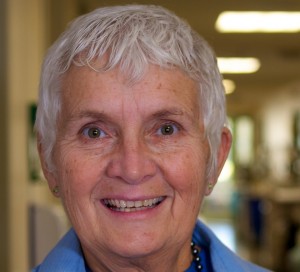Clinical Decision Support in the CST System: the benefits
In late 2015, sites across VCH, PHSA and PHC will begin using a shared clinical information system that includes clinical decision support tools.
These tools support healthcare providers at the point of care by presenting relevant information at the appropriate time. It does not make decisions for you; it allows you to make fully-informed diagnoses and decisions, using your experience, expertise and observations.
“CST is not going to dictate absolute practice to care providers,” asserts Dr. Kellé Payne, CST Executive Director and Transformation Lead, VCH. “Healthcare providers can continue to make appropriate decisions for patients, but these will be strengthened by the shared knowledge of highly skilled healthcare professionals based on recommendations from industry-standard, quality-of-care research.”
Clinical decision support tools include reminders for preventive care, alerts about potentially dangerous situations, evidence-based clinical guidelines, condition-specific order sets and more.
“For example,” says Kellé, “a patient arrives in the Emergency Department profoundly confused, and is identified by her driver’s licence. The system brings up an alert based on this identification – she is highly allergic to latex, so using such products could endanger her. The team would know that right away and make appropriate decisions based on that knowledge, without her having to verbalize it.
“Reminders about medications are also very important. A consultant orders a medication and the system reminds her that the patient has already had the maximum dose of that drug for the day. It will also remind her about any interactions with medications the patient takes at home.
“You can use reminders to make sure you don’t miss important treatment decisions. If an elderly patient has broken his shoulder and the arm needs to be immobilized, it is easy to forget that he still needs to be walked regularly. The system can even remind you that he normally walks with a cane.”
Why use clinical decision support tools?
• Patients receive better care based on better information.
• Patient outcomes improve because we can provide the most appropriate care.
• Fewer medical errors and adverse events occur.
• Improved efficiency can lower costs and increase patient satisfaction – for example, clinicians are alerted if a duplicate test is ordered, which if done would incur a cost and potentially inconvenience the patient.
“This is not about trying to create cookie-cutter care,” Kellé emphasizes. “For me, appropriate high-quality clinical decisions always come first in the case of any patient. Business decisions and processes come second, and technology third. However, we must all work hand-in-glove to make patient care as effective and as safe as possible.”
Background information
• Clinical & Systems Transformation (CST) is a joint initiative of VCH, PHSA and PHC, and one of the largest and most complex healthcare projects in Canada. It spans across several areas of the continuum of care including: acute care inpatient and outpatient units, ambulatory care and residential care. As well as creating consistent, leading practices, and a shared clinical information system, CST will deliver HIMSS Level 5 functionality.
• Clinical design teams, made up of hundreds of highly-skilled, multi-disciplinary professionals from across the three Health Organizations and Team IBM, started work on April 7, 2014. These teams are tasked with designing our future workflows, based on leading practices. In doing so they are defining the requirements for our new clinical information system.
Visit CSTproject.ca for more information and regular updates, and to submit suggestions for future articles. If you have questions or feedback, please email info@CSTproject.ca or contact Kelle Payne, CST Executive Director and Transformation Lead, VCH (Joint) at Kelle.Payne@vch.ca or Donna Stanton, CST Executive Director and Transformation Lead, VCH (Joint) at Donna.Stanton@vch.ca.


